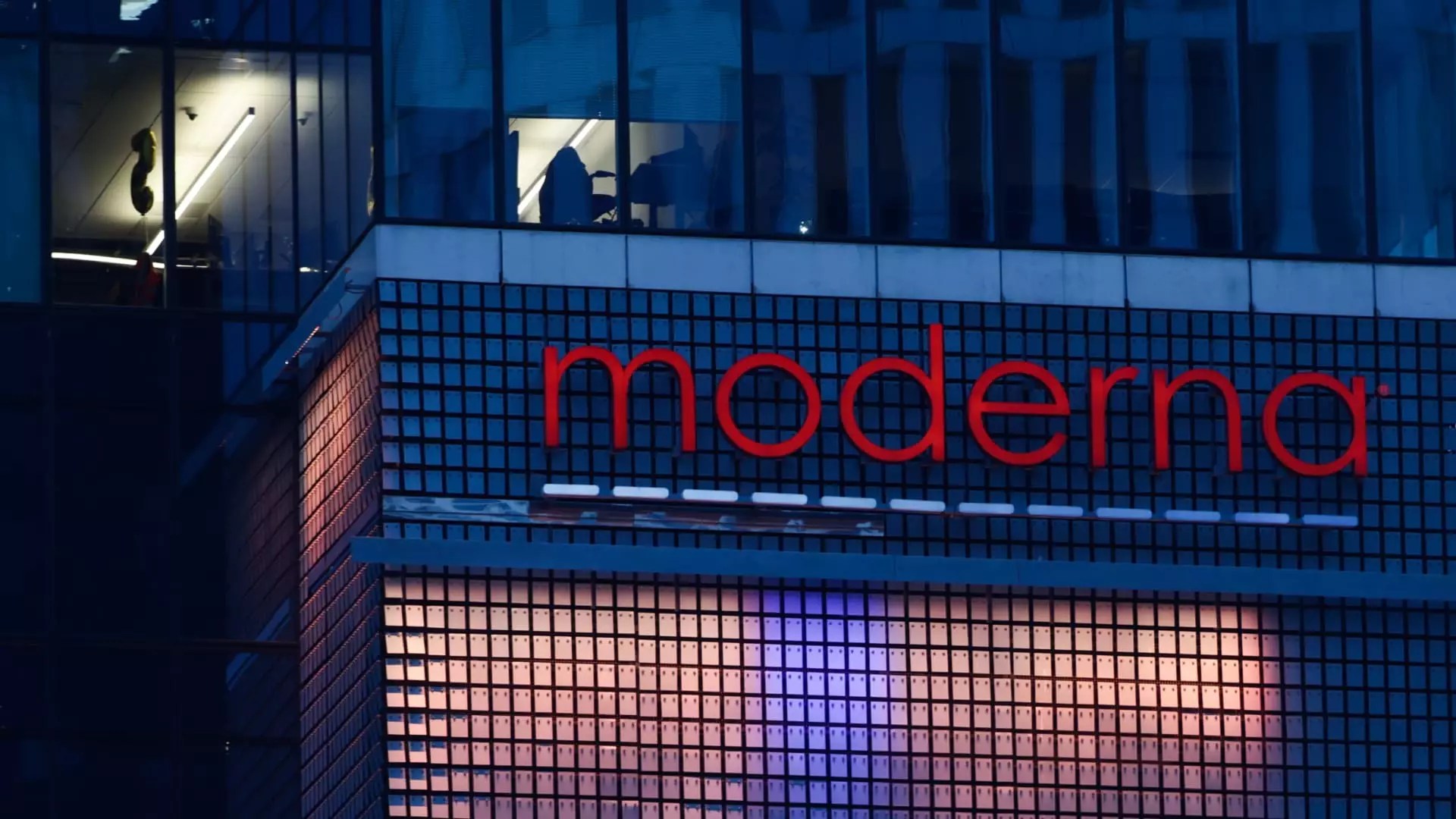Moderna’s recent 2% stock increase, attributed to promising results from its experimental flu vaccine trial, initially signals biotech innovation at its finest. However, this development underscores a larger dilemma: the relentless pressure on biotech firms to rapidly expand product portfolios in a competitive environment fueled by pandemic urgency. Moderna’s dual flu and Covid-19 vaccine strategy might sound like a breakthrough, but it also exemplifies the sector’s growing overreliance on a handful of blockbuster vaccines to justify investors’ lofty expectations. There’s an inherent risk that spreading focus too thin could dilute long-term innovation capacity. Biotech’s bright headlines may conceal strategic fragility.
Tech Titans in Legal Limbo: Hewlett Packard Enterprise & Juniper Networks
The DOJ’s settlement allowing Hewlett Packard Enterprise’s $14 billion acquisition of Juniper Networks sent their shares soaring, but behind this rally lies a disturbing trend of monopolistic consolidation. While corporate lawyers celebrate victory, the long-term consequence threatens competitive diversity in the networking market. This settlement reveals Washington’s conditional complicity in facilitating mega-mergers, provided they avoid protracted legal battles. Such transactions can stifle innovation and raise barriers for smaller competitors, ultimately curbing consumer choice and innovation momentum. Government interference appears too reactive and permissive, arguably favoring corporate behemoths over true free-market competition.
Meta’s Bold AI Hiring Spree: Ambition Cloaked in Uncertainty
Meta Platforms’ modest 2% increase belies the significance of scooping up four AI researchers from OpenAI for its new “Superintelligence” group. While this recruitment underscores Meta’s urgent pivot toward artificial intelligence dominance, it also highlights the cutthroat talent war and ethical quandaries tech giants face. Hiring top AI minds can accelerate innovation, but it cultivates a dangerously concentrated pool of expertise within corporate behemoths with insufficient regulatory oversight. Meta’s superintelligence ambition reeks of overconfidence—could this be another race toward irresponsible AI deployment, unchecked by adequate safeguards?
Home Depot’s Bold $4.3 Billion Bet on GMS: A Tale of Corporate Power Play
Home Depot’s aggressive acquisition of specialty distributor GMS for $4.3 billion reflects mounting consolidation in home improvement retail. Such concentration might streamline supply chains and pricing power for investors, but it raises warning flags about diminished competition and supplier diversity. In a sector deeply tied to American construction and housing—a critical economic segment—fewer independent distributors will weaken bargaining power and could eventually translate to increased costs for end consumers. Shareholders may cheer short-term gains, yet the broader market risks becoming less resilient.
Government and AI: Palantir Teams with Accenture for Federal Contracts
Palantir and Accenture’s announcement that the latter will be Palantir’s preferred partner for AI-driven automation in federal agencies is more than mere financial news. It illuminates the growing military-industrial complex’s embrace of artificial intelligence, raising ethical and political concerns about silencing government jobs under the guise of “efficiency.” This alliance also signifies the deepening entanglement between tech firms and government contracts, a dynamic that risks prioritizing technological control over democratic accountability and transparency. Public sector AI deployment demands rigorous debate—not just quiet stock market cheerleading.
Disney’s Resilience in Uncertain Times
Jefferies’ upgrade of Disney shares, backed by the steadiness of its parks and cruise businesses, might seem reassuring amid economic uncertainty. Yet, Disney’s resilience depends heavily on consumer discretionary spending, which remains vulnerable to inflation and geopolitical anxieties. Betting on cruise revenue spikes in 2026 is optimistic when global travel faces persistent threats from political instability and economic slowdowns. Disney certainly deserves praise for navigating these challenges, but investors must remain cautious about economic headwinds that threaten consumer-driven sectors.
Tesla’s Stock Dip and the Perilous Policy Landscape for Clean Energy
Tesla’s slight stock decline following President Trump’s spending bill progress encapsulates the precarious position of clean energy and electric vehicle industries in the U.S. Meanwhile, political maneuvers that accelerate the phase-out of renewable energy tax credits demonstrate an alarming lack of bipartisan commitment to sustainable technological transition. The bill’s provisions risk undermining advancements in electric vehicle adoption and green manufacturing at precisely the moment national and global imperatives demand bold climate action. It’s yet another indication that in Washington, economic nationalism and protectionist impulses often sabotage the future of American innovation in renewable energy.
—
This unsettling cluster of developments exposes a bifurcated market landscape where aggressive corporate consolidation and governmental entanglements clash with the urgent need for responsible innovation and sustainable growth. The American economic engine risks losing its dynamism unless policymakers and corporate leaders rethink their strategies with a long-term, market-friendly but principle-driven mindset.

